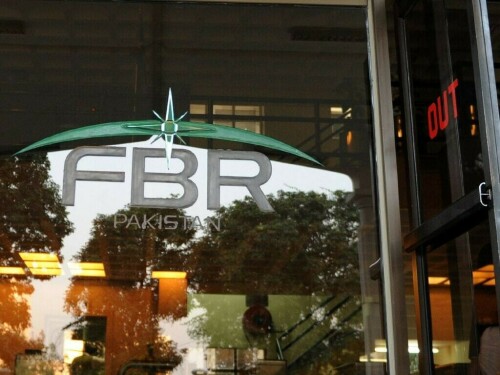HCSTSI Expresses Concerns Over FBR’s HS Code Changes
Muhammad Saleem Memon, the President of the Hyderabad Chamber of Small Traders & Small Industry (HCSTSI), has voiced substantial apprehension regarding the recent, unannounced modifications implemented by the Federal Board of Revenue (FBR) in the Harmonized System (HS) Codes and the novel intricacies introduced into the procedures for filing sales tax.
He articulated that these abrupt revisions have significantly impacted businesspersons, manufacturers, exporters, importers, and notably, smaller enterprises throughout the nation.
Acknowledging FBR’s endeavors toward digitization and greater openness, the President underscored that the manner in which these overhauls have been carried out has amplified the complexities faced by the business sector and exerted an adverse influence on the national financial state. He stated, “Business proprietors are now compelled to engage tax advisors even for rudimentary sales tax submissions, thereby escalating their operational expenses.” The technological challenges inherent in HS Code adherence and the H1 annexure have rendered punctual tax filing a formidable undertaking, culminating in deferred governmental revenue and widespread bewilderment among tax-compliant individuals.
He further remarked that the business community’s confidence in FBR, already tenuous, has been further undermined. He added, “Traders harbor the belief that the taxes they remit are not channeled back into their well-being, infrastructure, or business facilitation.” This sentiment has propelled numerous small and medium-sized traders back into the informal economic sphere, inflicting a considerable setback to Pakistan’s initiative for economic formalization. Exporters are similarly encountering difficulties stemming from port clearance delays, precipitating interruptions in export timelines and tarnishing Pakistan’s standing in the global market.
Referencing Malaysia as a noteworthy illustration, the Chamber president conveyed that their Royal Customs Department executed HS Code digitization in a phased approach, buttressed by suitable training and consultations with relevant parties. This methodology fostered trust while guaranteeing more seamless compliance.
He implored the Prime Minister of Pakistan to promptly acknowledge the gravity of the circumstances and instruct FBR to abstain from enacting such technological revisions without exhaustive engagement with pertinent stakeholders. He emphasized that all policy implementations should be progressive, reinforced by comprehensive training initiatives, particularly for small and medium-sized enterprises (SMEs), to facilitate their adaptation to the novel systems.
He additionally advocated for FBR to suspend all penalties and overdue charges during this interim period and to institute support centers within each chamber and trade body to extend assistance to the business fraternity. Foremost, he underscored that reinstating trust in FBR necessitates transparent reinvestment of tax collections into endeavors aimed at business prosperity, infrastructural augmentation, and assistance programs for traders.
HCSTSI President Muhammad Saleem Memon concluded, “Pakistan’s economic resurgence remains unattainable absent the collaboration of the business milieu, and such collaboration can solely be cultivated through deliberation, openness, and facilitation.”



Comments (0)
No comments yet. Be the first to comment!
Leave a Comment